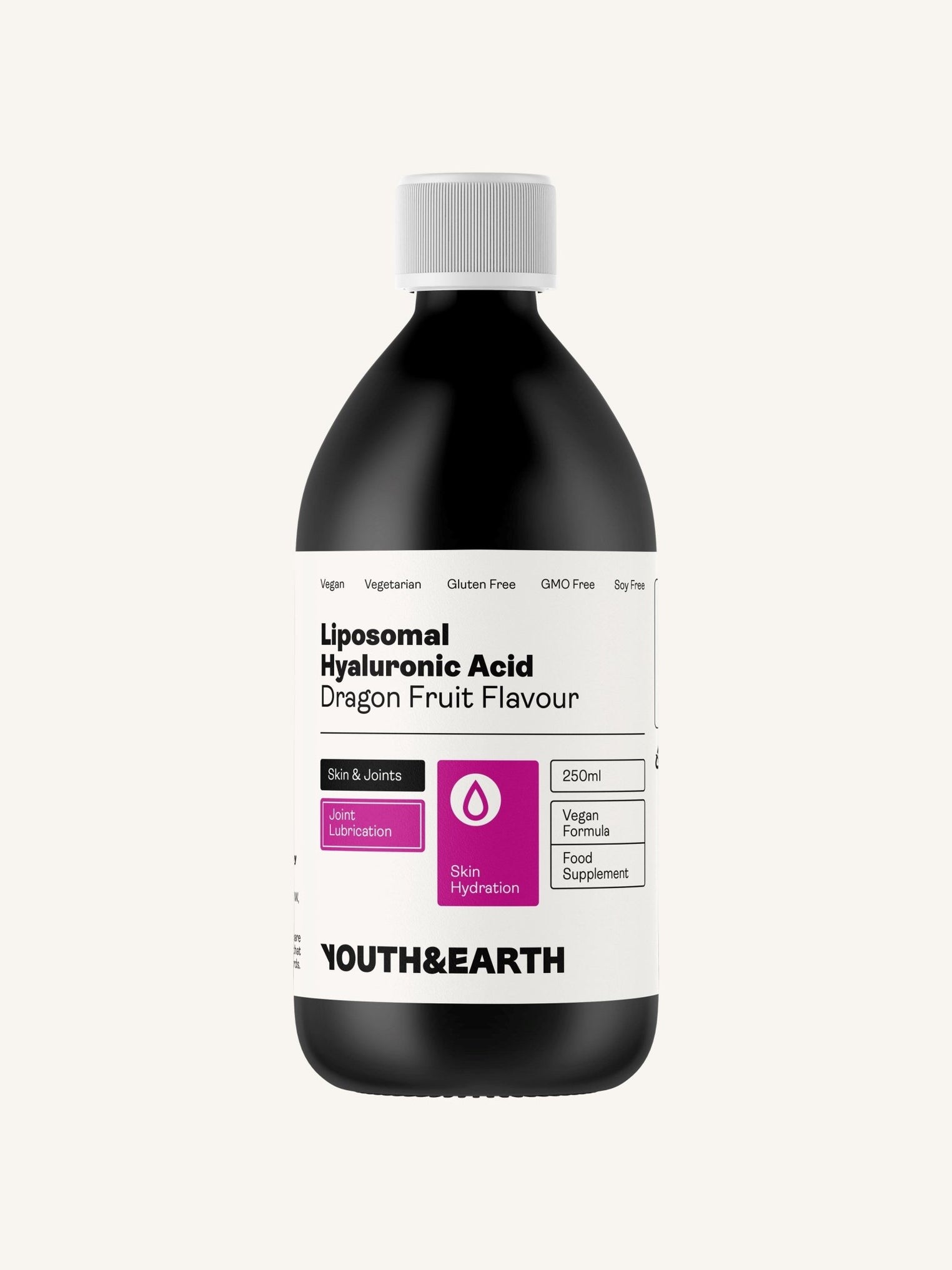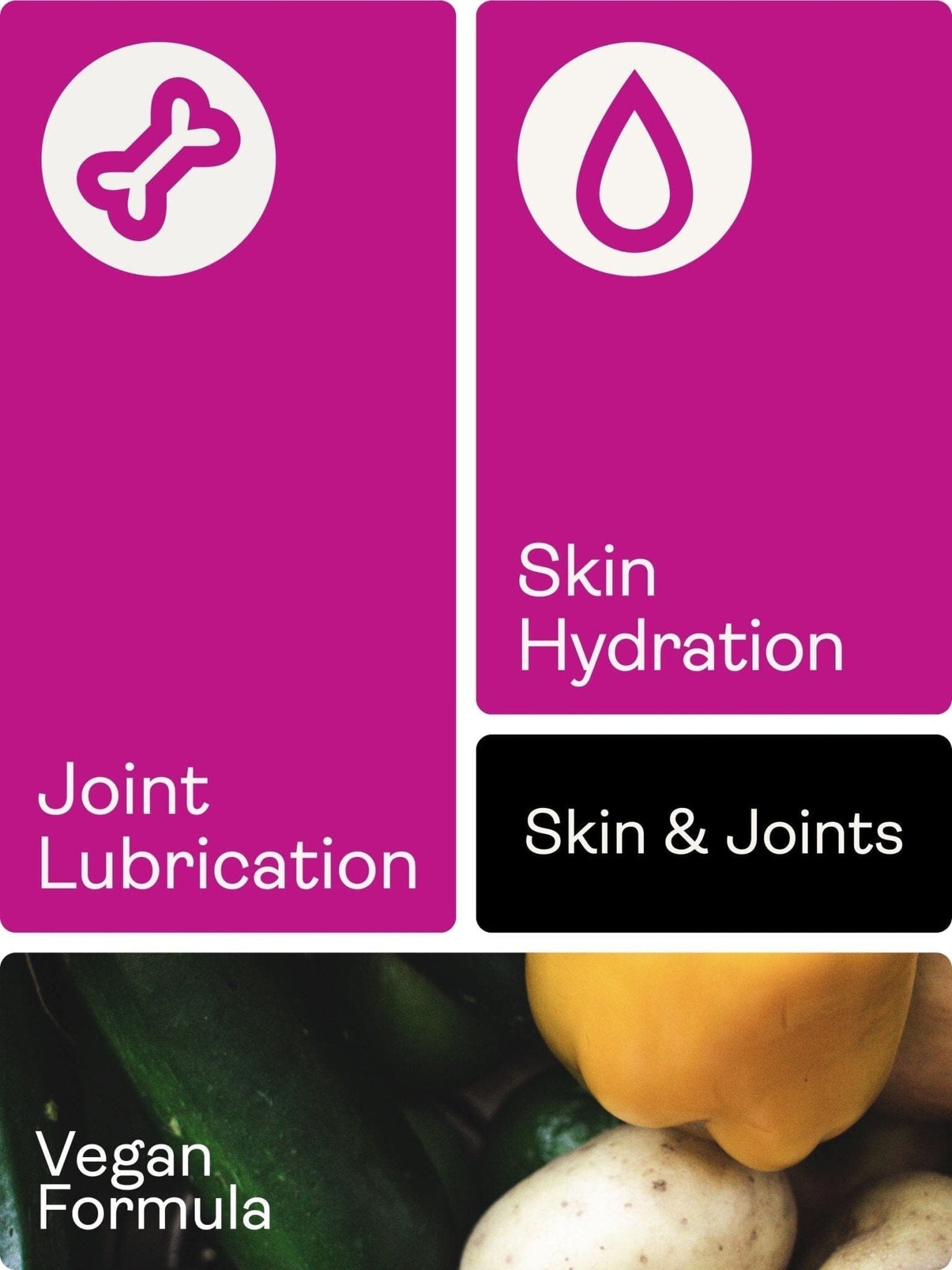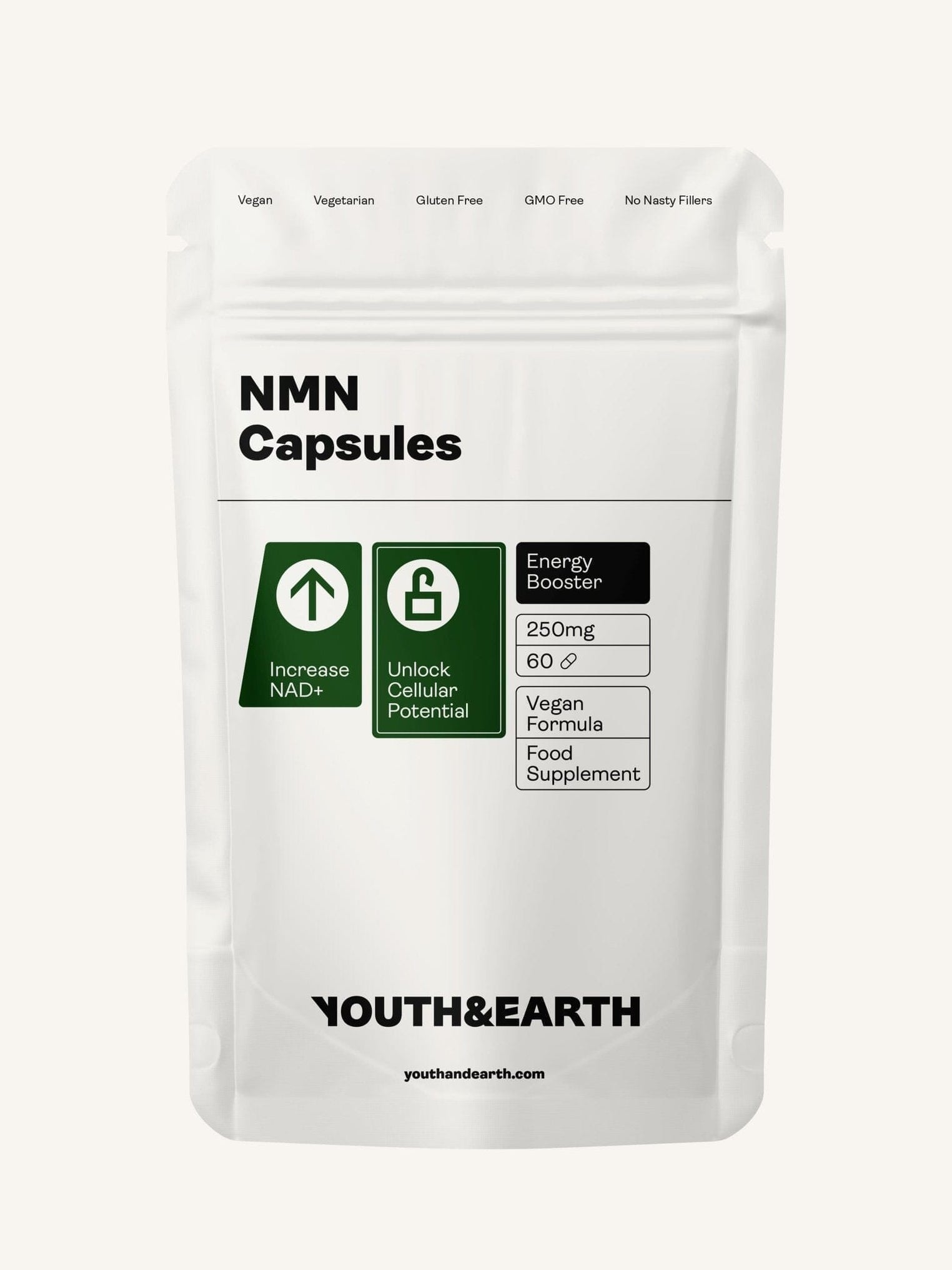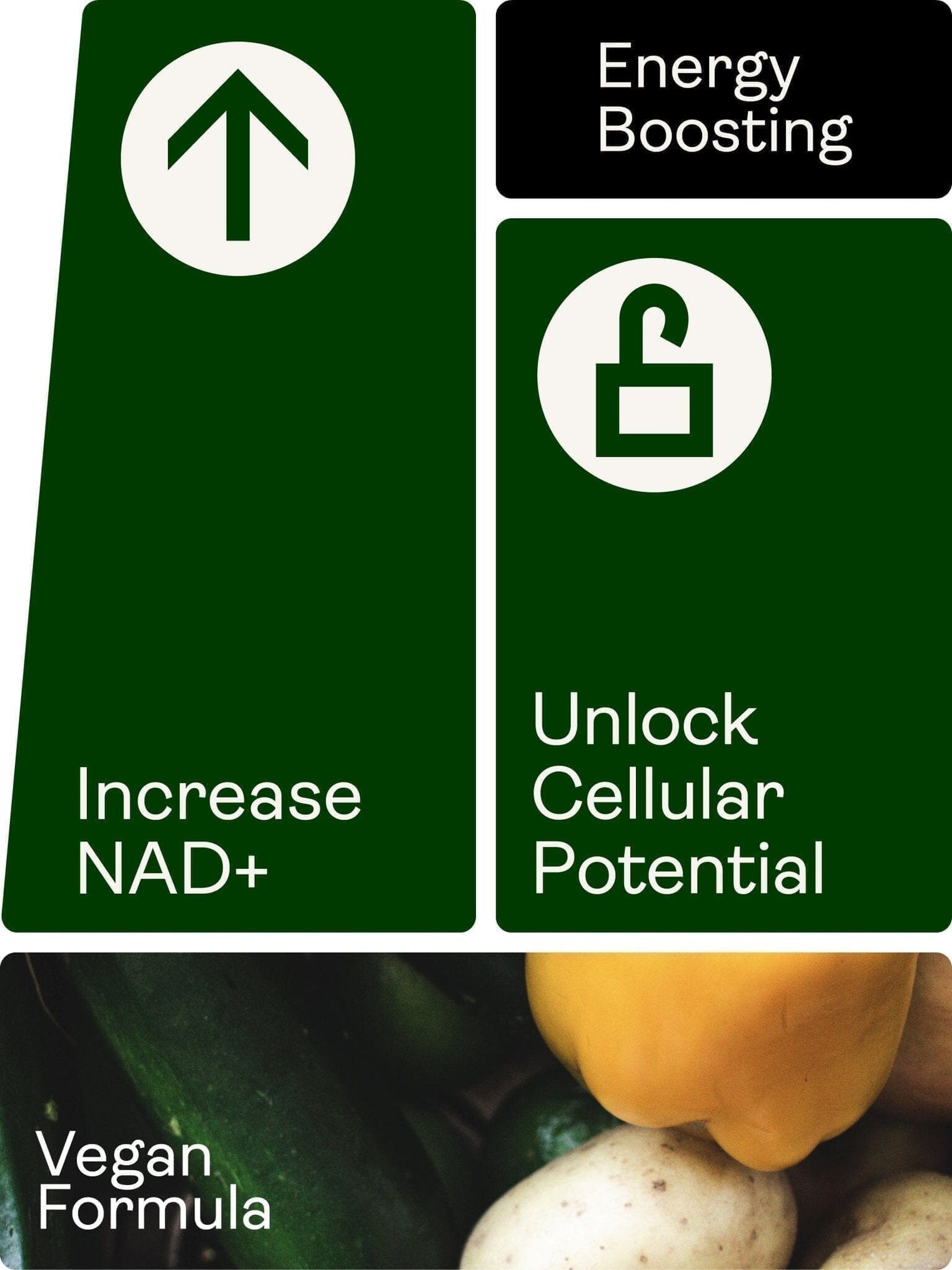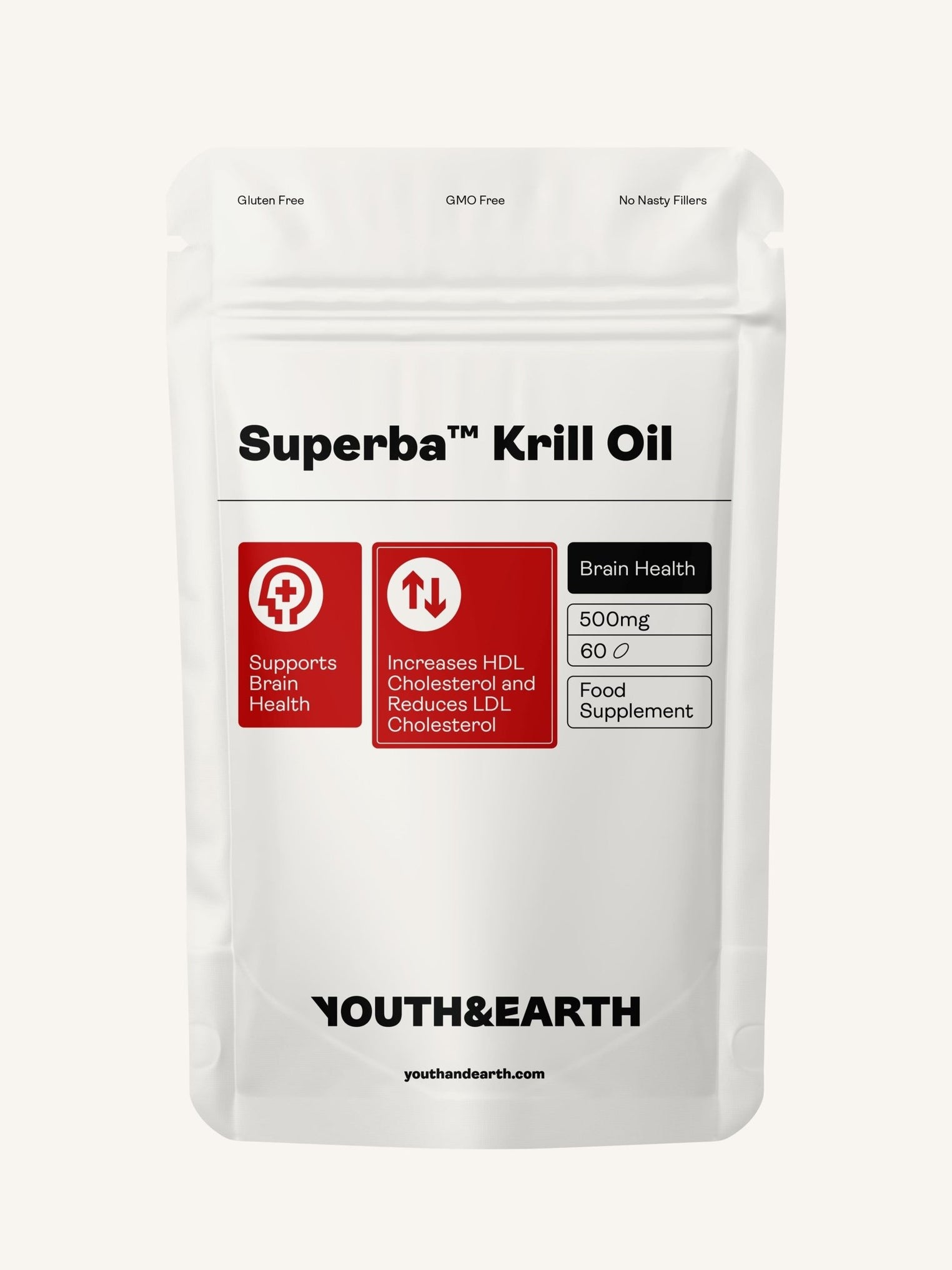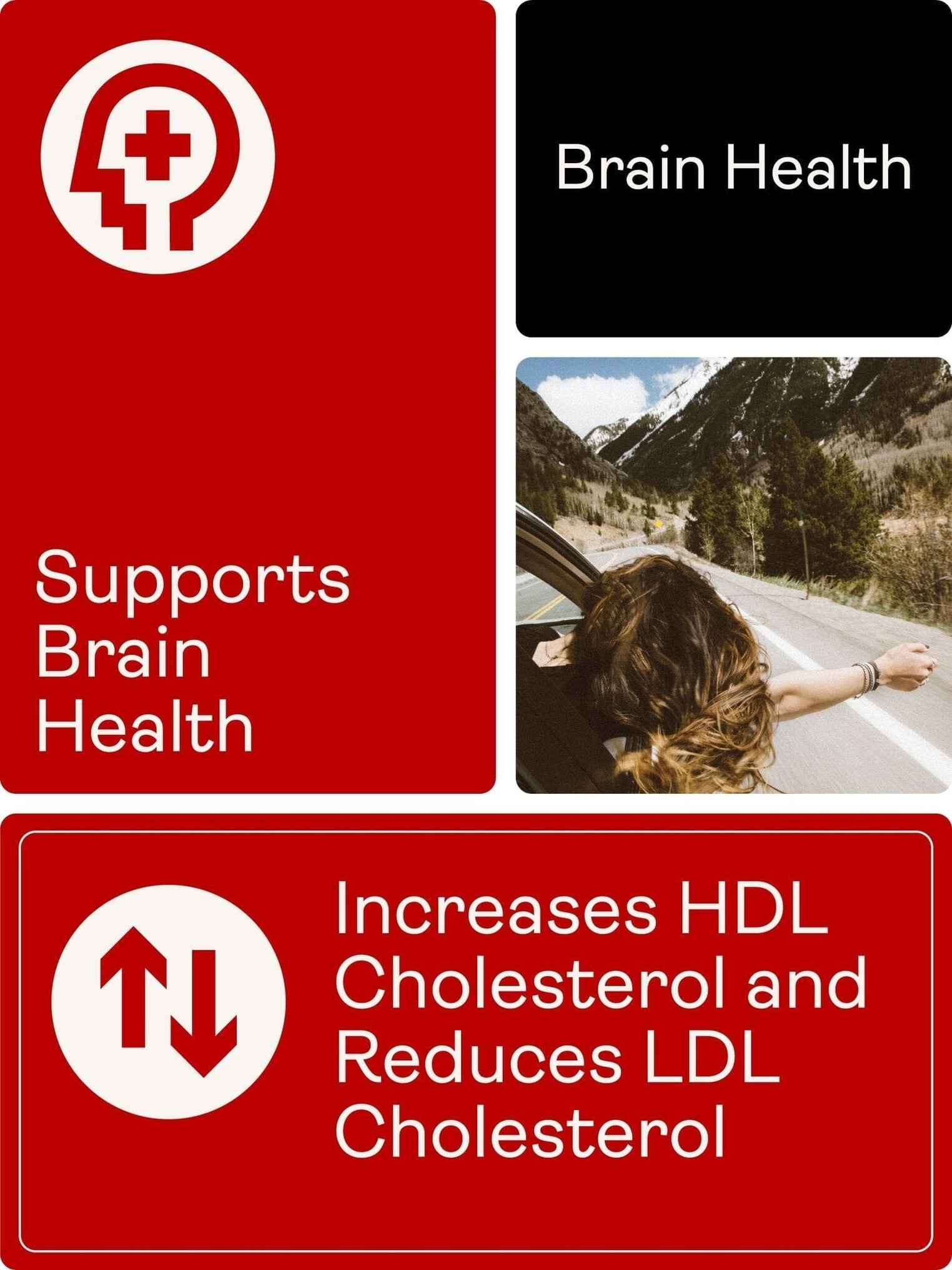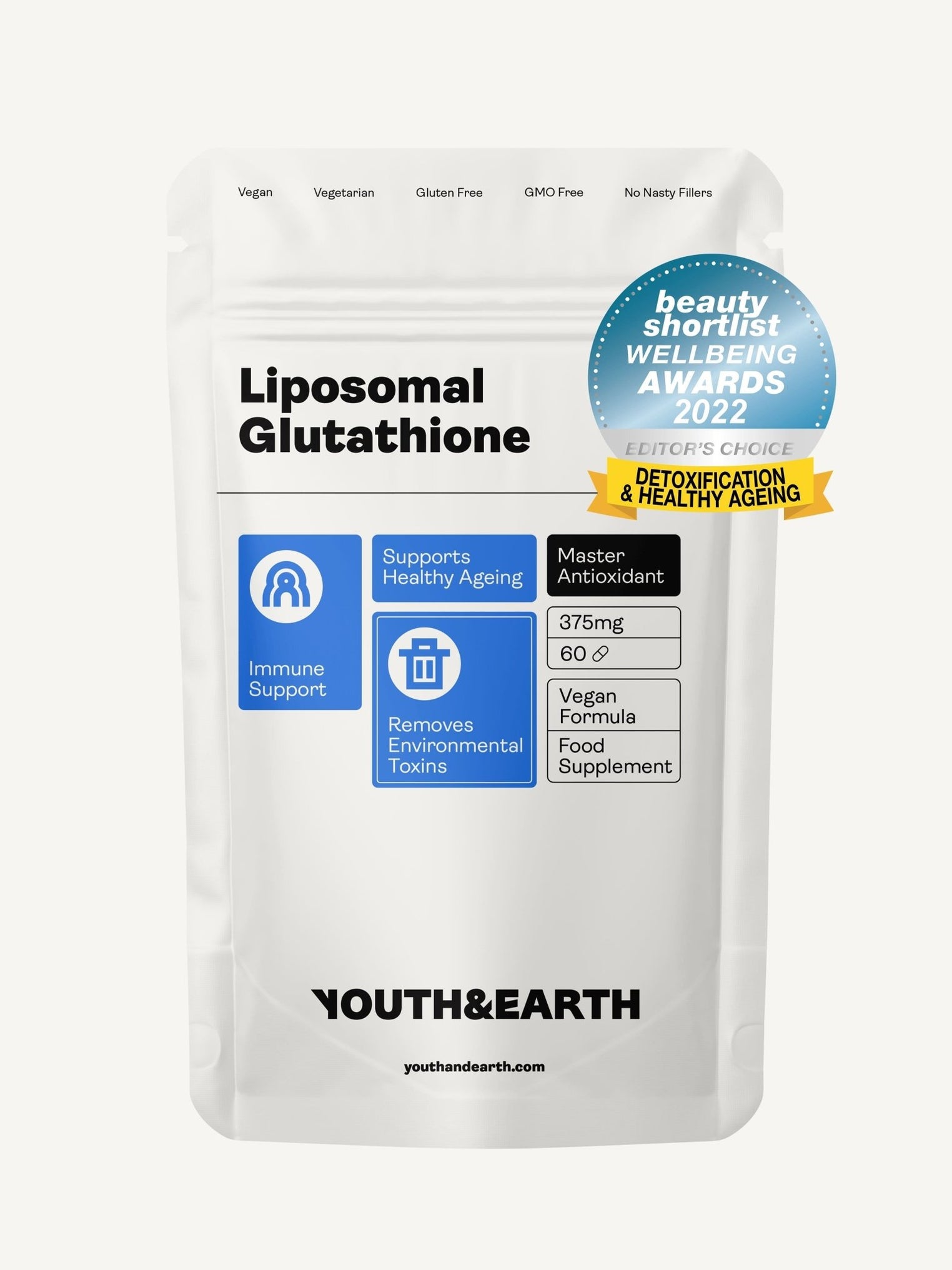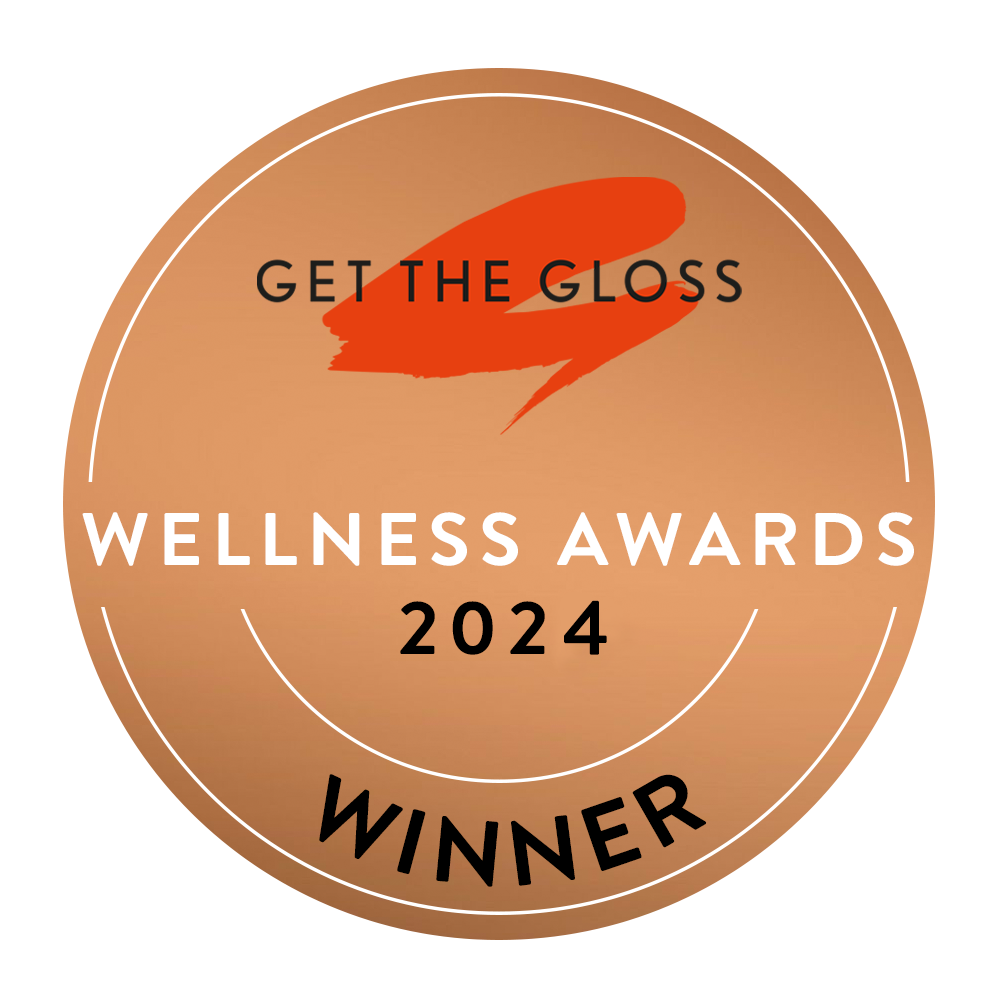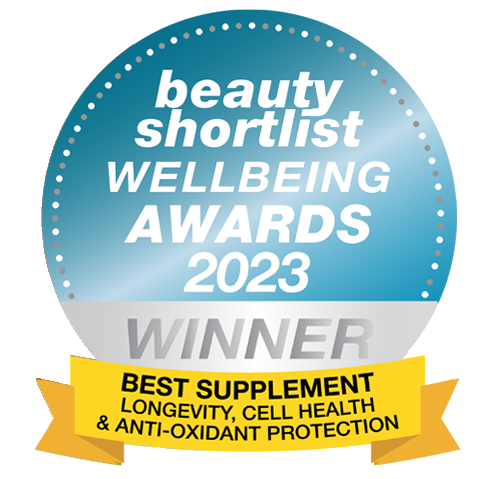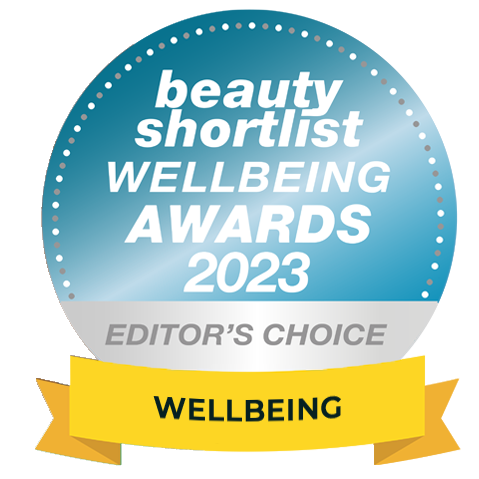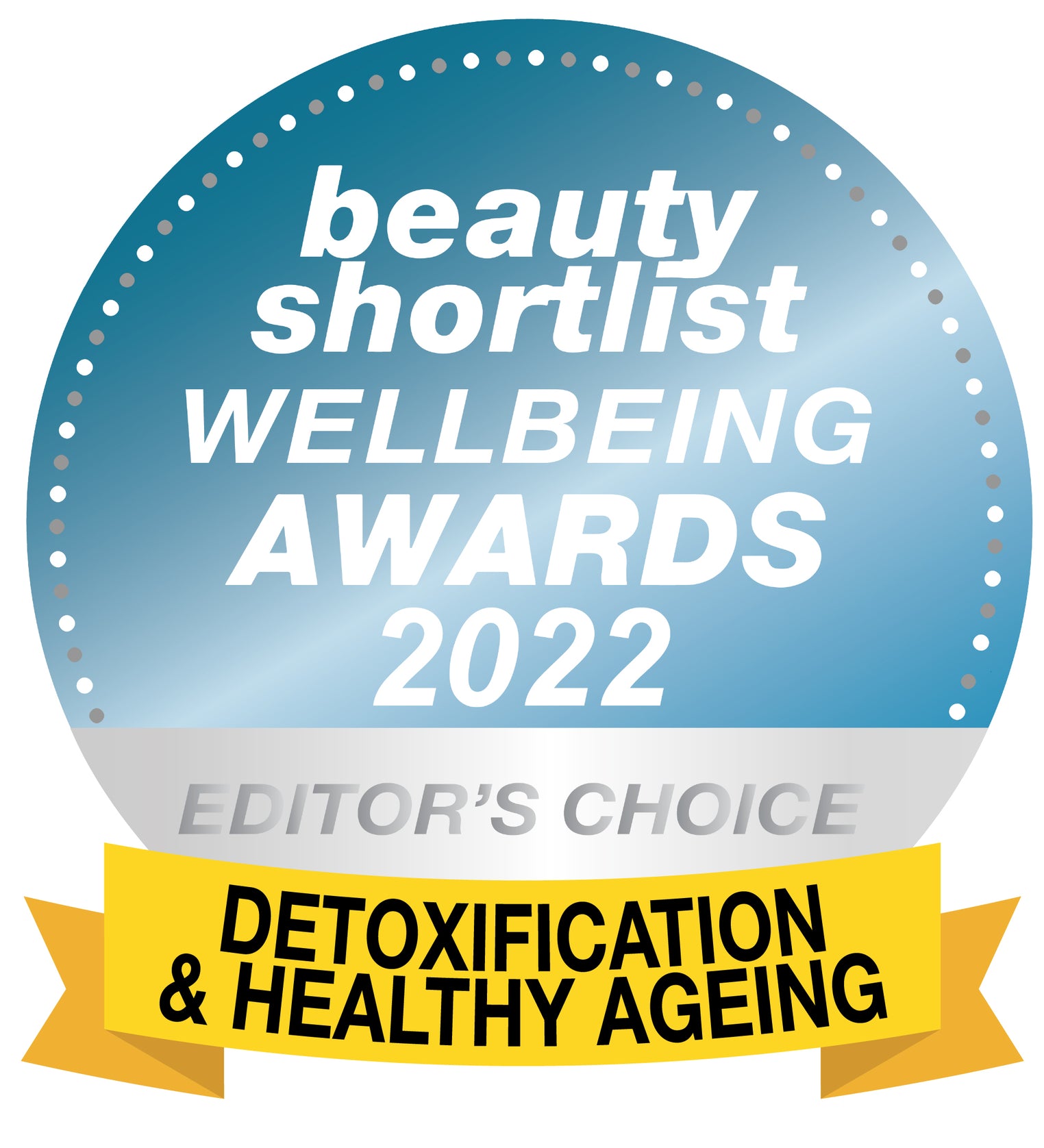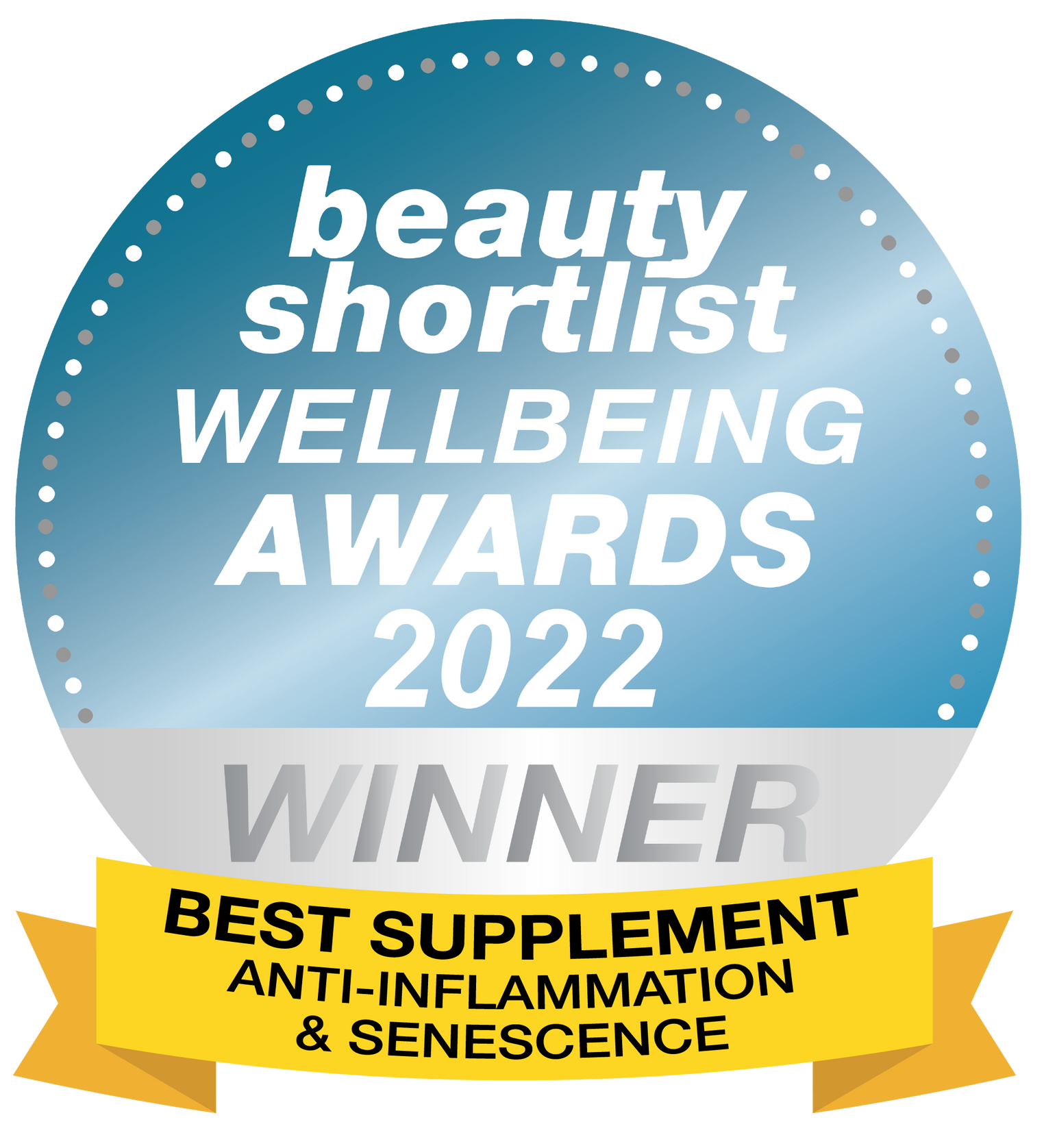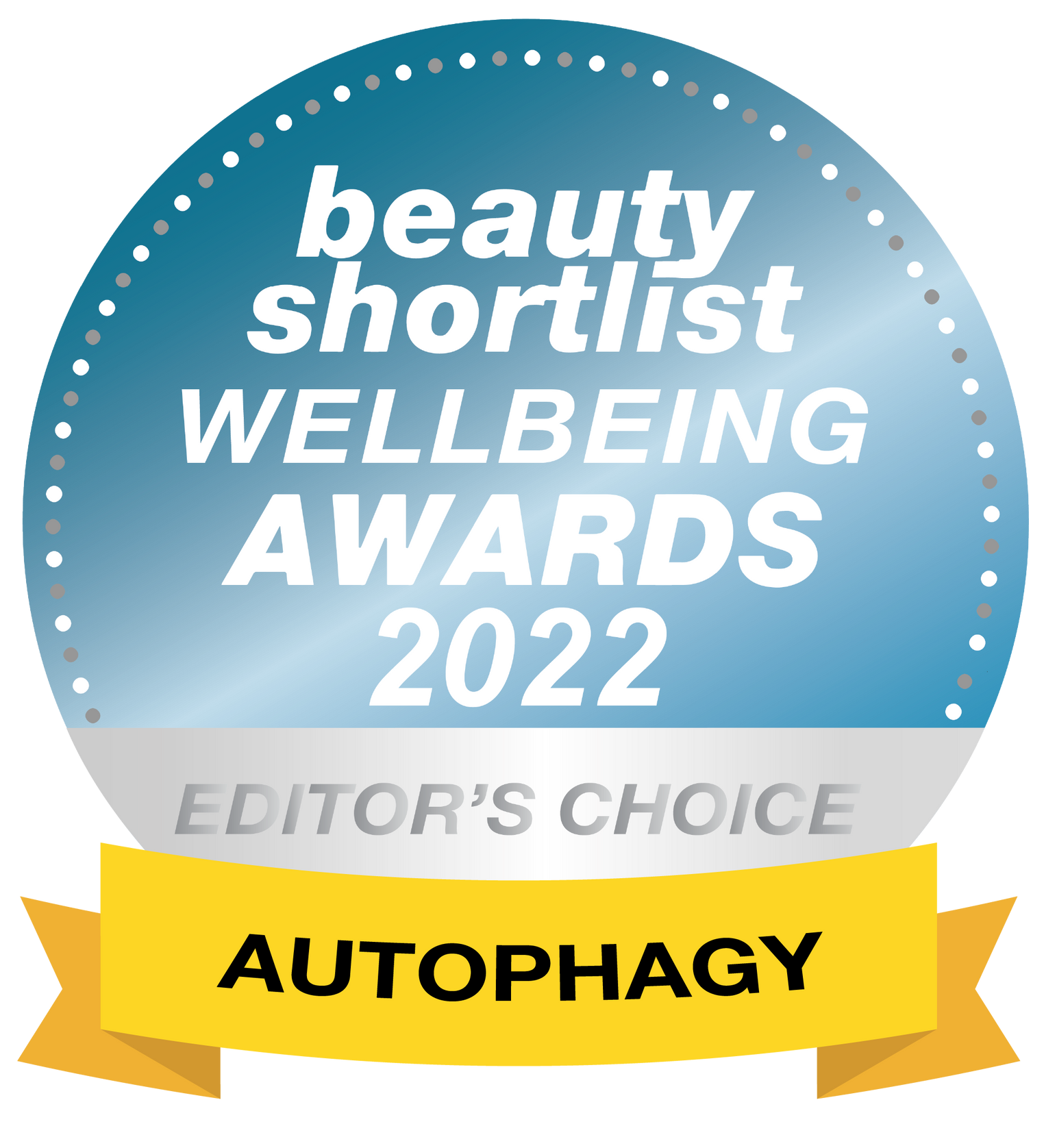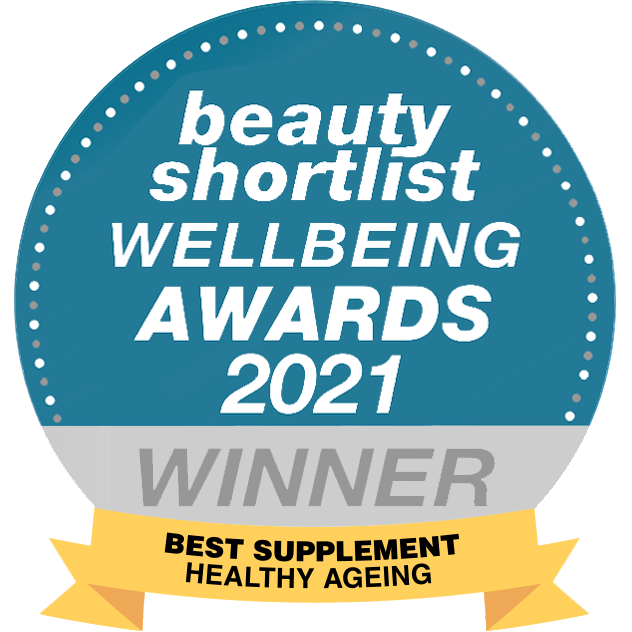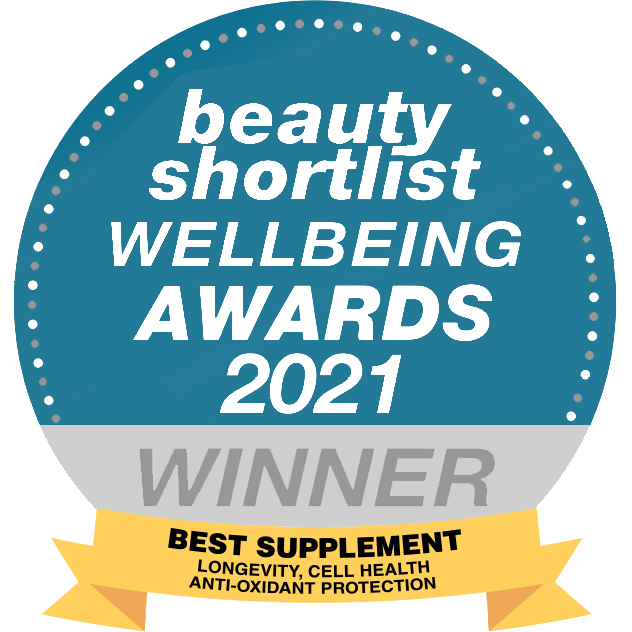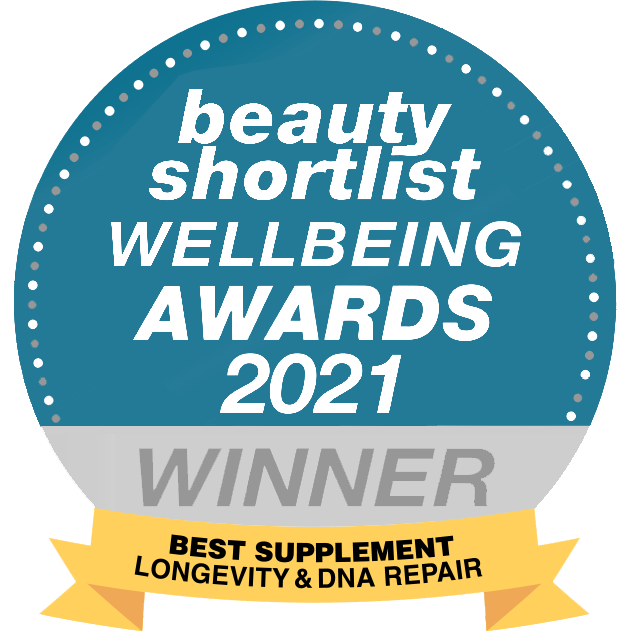TL;DR: Why Biohackers Love Hyaluronic Acid
Hyaluronic acid is a hydration-boosting molecule naturally found in your skin, joints, and eyes. As you age, HA levels drop—leading to wrinkles, dry skin, joint pain, and even eye discomfort. Supplementing with high-bioavailability HA can support smoother skin, better mobility, bone density, and wound healing. It’s one of the easiest, science-backed anti-ageing strategies in the biohacker’s toolkit.
Whether it’s used in serums, supplements, or injections, HA plays a vital role in skin hydration, joint lubrication, and tissue repair. Let’s unpack how this naturally occurring molecule supports anti-ageing and longevity.
Table of Contents
-
Top 5 Health Benefits of Hyaluronic Acid
-
Joint Pain & Arthritis Relief
-
Skin Hydration & Wrinkle Reduction
-
Wound & Sun Damage Repair
-
Bone Strength & Density
-
Dry Eye Support
-
-
Advanced Biohacking with Hyaluronic Acid
-
HA vs Collagen vs NMN: What to Stack
-
Why Molecular Weight Matters
-
New Science: Stem Cells, Mitochondria & Neuroprotection
-
90-Day Biohacking Protocol with HA
-
Pairing HA with Skincare Actives
-
Science Snapshot
| Mechanism | Function | Biohacking Benefit |
|---|---|---|
| Water Retention | Binds 1000x its weight in water | Deep skin hydration, reduced wrinkles |
| Collagen Support | Protects and stabilises collagen | Joint, ligament, and skin support |
| Tissue Repair | Promotes cell growth and blood flow | Speeds wound healing, supports longevity |
| Bone Health | Preserves bone density in ageing | Slows osteoporosis progression |
| Eye Hydration | Maintains tear production | Relieves chronic dry eye |
What Is Hyaluronic Acid and How Does It Work?
Hyaluronic acid (HA) is a naturally occurring sugar molecule found throughout the body, with the highest concentrations in skin, eyes, and joints. Its key role is to bind to water, keeping tissues hydrated, plump, and mobile.
HA supports skin elasticity, joint lubrication, and wound healing. However, HA levels decline with age—leading to dehydration, stiffness, and wrinkles. Modern supplements use fermented, plant-based HA for higher purity and sustainability.
How Hyaluronic Acid Supports Anti-Aging
HA helps the body maintain youthfulness by:
-
Retaining skin moisture and firmness
-
Enhancing collagen stability
-
Reducing signs of joint degeneration
-
Repairing micro-damage in skin and connective tissue
These
For more on aging, you might also like to read our article: The Three Factors That Cause Premature Aging.
Top 5 benefits of hyaluronic acid?
Hyaluronic acid was first discovered in the early 1940s. Since then, it has become a topic for thousands of research papers. Here are a few of its major benefits.
Does It Help with Joint Pain and Arthritis Relief?
Our bones, cartilage, and joints all contain hyaluronic acid. The cartilage and synovial fluid (a jelly-like substance in the joint) protect and cushion the bones. Because HA absorbs water, it helps hydrate bones, maintain collagen, and protect the cartilage and joints. And, as a result, it’s highly effective at reducing the symptoms associated with arthritis and other degenerative joint conditions.
For example, one of the many studies found it to help people, aged 70 and younger, with knee pain (osteoarthritis) after receiving 80-200mg of HA daily for two months.
Can It Improve Skin Hydration and Wrinkles?
This water-loving molecule can retain to 1 000 times its weight in water, it naturally hydrates dry skin and makes it look softer and smoother. The extra moisture also reduces the appearance of fine lines and wrinkles. Numerous studies have found that it reduces these aging skin signs and improves the suppleness and firmness of the skin.
Does It Help Wounds and Sun-Damaged Skin Heal?
Absolutely. Hyaluronic acid also helps with tissue regeneration which makes it particularly effective at healing wounds and other skin damage, including sunburn. This is due to its ability to keep the tissue moist, manage inflammation, and stimulate the body to produce more blood vessels in the damaged area. This helps nutrients get to the damaged tissue and also helps the body remove waste from those areas.
What About Bone Strength and Density?
Hyaluronic acid also seems to play a vital role in keeping our bones strong and healthy. Studies have found that HA may help slow down bone loss during the beginning stages of osteoporosis and another test-tube study found that HA helped bone cells grow.
Although more research is needed on HA and bone health, the studies are indicating that it can help our bones stay strong and delay bone loss due to aging.
Can It Relieve Dry Eyes?
The eye socket contains a fluid that is almost entirely made out of hyaluronic acid. A lack of this fluid can lead to chronic dry eyes because the body is not able to produce enough tears or the tears evaporate too quickly. Chronic dry eyes are extremely uncomfortable.
A study found out that 1 out of 7 older adults (aged 65 to 84 years) suffer from dry eye. The research noted the prevalence of the condition doubled after the age of 59, which seems to indicate that we become more susceptible to this condition as we age. Using eye drops that contain hyaluronic acid can bring relief to this condition. Interestingly, researchers have found NMN to be beneficial in treating dry eye and improving eye function. You can find out more about NMN in our article What is NMN and Are There Any Side Effects?
Hyaluronic acid is also used in eye surgery to hydrate, reduce inflammation, and speed up wound healing. It’s been approved by the Food and Drug Administration (FDA) to help replace natural fluids in procedures like cataract removal, repairing detached retina and corneal transplants.
Which foods contain hyaluronic acid?
Hyaluronic acid is naturally produced by the body, but certain foods can help increase or preserve its levels. Here’s a breakdown:
| Food Category | Example Foods | How It Helps with HA Production or Preservation |
|---|---|---|
| Bone Broth | Made from long-simmered bones and cartilage | Naturally high in HA and collagen compounds |
| Soy-Based Foods | Tofu, tempeh, edamame | May boost HA levels via natural estrogen pathways |
| Starchy Vegetables | Sweet potatoes, potatoes, jicama | Found to stimulate HA production in the body |
| Magnesium-Rich Foods | Leafy greens, nuts, seeds, avocado | Magnesium is a cofactor in HA synthesis |
| Citrus Fruits | Oranges, grapefruits | Help prevent enzymatic breakdown of HA, preserving levels |
Including these foods in your diet supports your body’s natural hyaluronic acid levels. However, for optimal results—especially with age-related decline—supplementation with a bioavailable form of HA remains the most effective strategy.
Choosing the Best Hyaluronic Acid Supplement
Hyaluronic acid comes in many forms such as serums, creams, oral supplements, eye drops, and injections. If you have a specific condition, and your health practitioner recommends hyaluronic acid, he or she will most likely give you the supplement that will be most effective. For example, if you struggle with osteoarthritis in the knee, he or she might well administer an HA injection.
Serums are widely used in beauty products and anti-aging creams, however these work from the outside in. Also, some oral supplements have a low bioavailability because HA has a naturally high molecular weight which means that you experience fewer health benefits.
Our Liposomal Hyaluronic Acid has high bioavailability and allows HA to be absorbed directly into the cells and tissues where it's needed the most. This revolutionary product gets to work deep within the skin and cells, allowing you to look and feel younger.
For more on liposomal supplements and why they are so effective, read What are Liposomal Supplements and How Do They Work?
Are There Any Side Effects of Hyaluronic Acid?
Hyaluronic acid is generally safe and well-tolerated.
Oral Supplement Side Effects:
-
Rare and mild
-
Caution advised during pregnancy, breastfeeding, or if on medication
Injection-Related Side Effects:
Hyaluronic injections to the skin or joints present a higher risk of side effects. However, the concern is with a reaction to the injection procedure rather than with the substance itself. Side effects that may occur include pain in the joint that’s injected, swelling, and stiffness, redness, itching, or tingling. Individuals might also experience headaches and dizziness. If you are going to undergo HA injections, it’s best to seek medical advice about the known side effects.
Advanced Applications of Hyaluronic Acid in Biohacking
How Does Hyaluronic Acid Compare with Collagen and NMN in a Biohacking Stack?
Hyaluronic Acid (HA), Collagen, and Nicotinamide Mononucleotide (NMN) are frequently stacked in longevity routines. Each molecule targets different, but complementary, aspects of healthy ageing.
|
Molecule |
Primary Function |
Best Used For |
Synergy |
|
HA |
Hydration, lubrication, and tissue repair |
Skin, joints, eyes |
Enhances collagen function by maintaining hydration |
|
Collagen |
Structural protein for skin, joints, bones |
Elasticity, firmness, strength |
Works better when tissues are well-hydrated by HA |
|
NMN |
NAD+ precursor, supports energy metabolism and repair |
Cellular energy, DNA repair, cognitive health |
May improve HA production via SIRT1 activation |
Biohacking Tip:
Stacking HA + Collagen improves skin bounce and elasticity, while NMN promotes the cellular metabolism needed to rebuild collagen and HA-rich tissue. This trio can be foundational for anti-ageing interventions targeting both appearance and performance.
Why Molecular Weight Matters in HA Absorption
Hyaluronic acid’s molecular weight (MW) affects how it interacts with the body:
|
Type |
Molecular Weight |
Absorption |
Common Use |
|
High MW HA |
>1,000 kDa |
Mostly remains on skin surface |
Serums, injections for cushioning |
|
Medium MW HA |
400–1,000 kDa |
Some transdermal action |
Moisturisers, eye drops |
|
Low MW HA |
<250 kDa |
Best for oral absorption |
Supplements, liposomal delivery |
Low molecular weight HA is broken down into smaller fragments, allowing better bioavailability through the gut barrier. Youth & Earth’s INJUV and Liposomal HA use this format to deliver HA directly into the bloodstream and target tissues.
New Science: HA, Stem Cells, Mitochondria & Neuroprotection
Recent studies are expanding our understanding of HA beyond joints and skin:
-
Stem Cell Modulation: HA has been shown to influence mesenchymal stem cell migration and differentiation, especially in skin and joint tissue repair.
-
Mitochondrial Support: Some findings suggest that HA helps stabilise mitochondrial membranes and reduce ROS (reactive oxygen species) in damaged tissue environments.
-
Neuroprotection: Emerging research shows HA plays a role in protecting neural tissue by modulating inflammation and glial cell function—important for cognitive longevity.
These areas are early-stage but promising for biohackers interested in advanced regeneration, not just maintenance.
Case Study Concept: 90-Day Hyaluronic Acid Protocol for Visible & Measurable Change
Protocol Overview:
-
Products Used: Youth & Earth Liposomal HA + INJUV
-
Daily Dosage: As per product label
-
Supportive Habits: High-magnesium diet, bone broth, hydration, collagen stacking, moderate weight-bearing exercise
Suggested Metrics to Track:
|
Week |
Measurement |
What to Observe |
|
0 |
Skin moisture (corneometer), joint flexibility, subjective pain score |
Baseline |
|
4 |
Fine line visibility, hydration level |
Early improvement |
|
8 |
Joint range of motion, skin firmness |
Measurable effects |
|
12 |
Before/after photos, quality of life index |
Long-term biohacking gains |
Optional Add-ons: Include NMN for cellular repair support and Krill Oil to lower inflammation.
How to Stack Hyaluronic Acid with Skincare Actives
HA acts as a moisture magnet and enhancer when paired with other skincare ingredients. It helps shuttle active compounds deeper into the skin and prevents irritation by keeping skin hydrated.
Best Biohacking-Compatible Pairings:
-
Retinol (Vitamin A): HA reduces dryness and peeling commonly caused by retinol.
-
Peptides: Boost skin elasticity and collagen when layered under a hydrating HA serum.
-
Niacinamide (Vitamin B3): Improves skin barrier and tone; works synergistically with HA to reduce fine lines and redness.
Application Tip:
Apply HA first on damp skin to draw moisture in. Follow with actives like niacinamide or peptides, and seal with a ceramide-based moisturiser.
Conclusion: Biohack Your Hydration, Joints & Skin
If you are struggling with joint pain and stiffness, and your skin is feeling dry and dehydrated, then supplementing with hyaluronic acid will potentially help ease many of these symptoms. For further relief and to help inflammation, you can also try supplementing with our Krill Oil that has shown to be beneficial in providing relief to inflamed joints and many other conditions. You can read more on Krill Oil and its benefits in What is Krill Oil and Why Is It Good for You? As with all health supplements, the most benefit is found when taken in conjunction with a healthy diet and active lifestyle.
Checklist: Biohacking with Hyaluronic Acid
✅ Rehydrates skin and reduces wrinkles
✅ Lubricates joints and cushions cartilage
✅ Accelerates wound healing and skin repair
✅ Supports healthy bones and reduces early bone loss
✅ Alleviates dry eye symptoms
✅ Works best in low molecular weight or liposomal form
FAQ: Hyaluronic Acid and Biohacking
What is the main benefit of hyaluronic acid for biohackers?
Hyaluronic acid supports cellular hydration, joint mobility, and tissue regeneration—making it a multi-benefit anti-ageing molecule.
How does Hyaluronic Acid compare to collagen?
Collagen builds structure, while HA hydrates and protects. They work synergistically in anti-aging routines.
What’s the difference between liposomal and regular Hyaluronic Acid supplements?
Liposomal Hyaluronic Acid is absorbed directly into cells, offering greater bioavailability and faster results this is because the Liposomes act like a trojan horse so we can expect it to be maybe 30 times more powerful.
Can diet alone boost HA levels?
Yes, but supplementation is more effective, especially as natural production declines with age.
Are there any conditions where HA supplementation should be avoided?
Caution is advised during pregnancy, breastfeeding, and for individuals with autoimmune conditions. Consult a doctor first.
Glossary
Hyaluronic Acid (HA): A sugar molecule that binds water in skin, joints, and eyes, supporting hydration and tissue repair.
Liposomal: A delivery method using lipid vesicles to improve nutrient absorption at the cellular level.
Synovial Fluid: The viscous fluid found in joints that reduces friction and cushions cartilage.
Collagen: The primary structural protein in skin and connective tissue.
Osteoarthritis: A degenerative joint disease caused by cartilage breakdown and joint inflammation.
About the Author
Ed Van Harmelen is the founder of Youth & Earth and a passionate advocate for biohacking and anti-aging since 2017. He has been featured in numerous podcasts and wellness publications for his insights on longevity, biohacking, and the science behind supplements. Ed is widely regarded as a pioneer in bringing cutting-edge anti-aging tools to everyday consumers, making the benefits of advanced biohacking science both accessible and actionable. He is also the founder of optimallyme.com, a leading B2B health optimisation platform, and V14, an all-in-one longevity supplement.
















